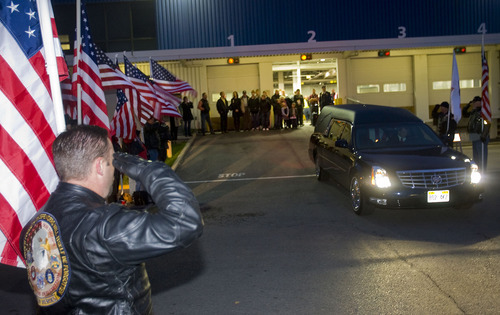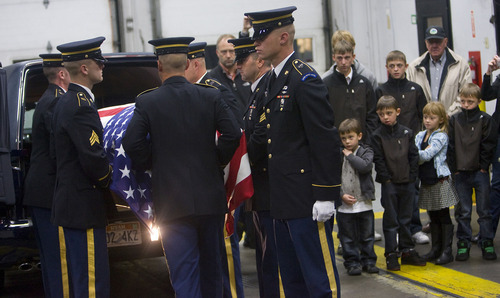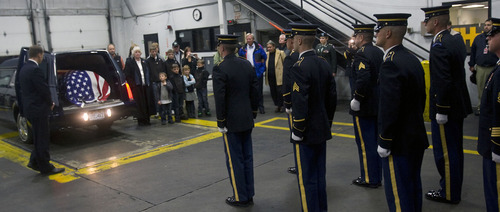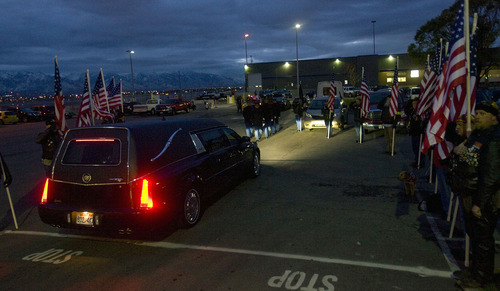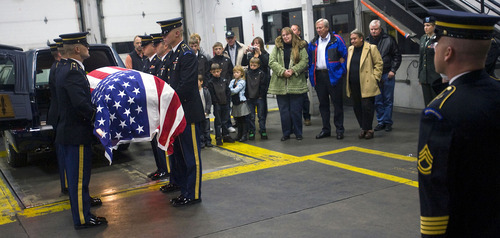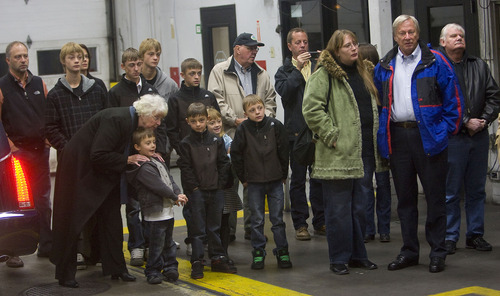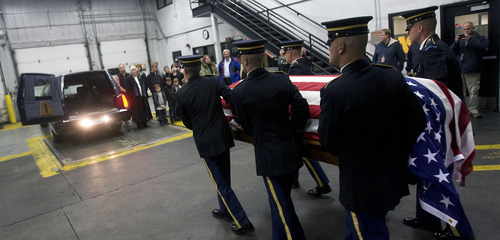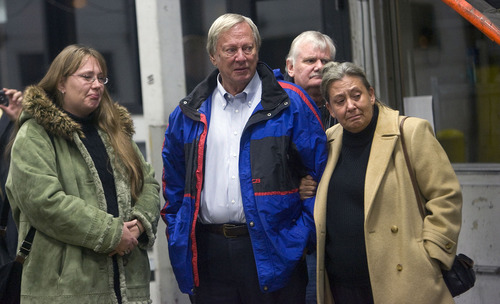This is an archived article that was published on sltrib.com in 2010, and information in the article may be outdated. It is provided only for personal research purposes and may not be reprinted.
I never met my uncle, George Willard Grismore. He disappeared during World War II, three years before I was born. But, growing up, his spirit was always in my home. He was my mother's hero and, through her, I learned all about him. He was my grandmother's oldest son, and she never got over the loss.
On Wednesday, 65 years after his plane was lost while on a mission to supply gasoline to Filipino guerrillas fighting the Japanese on the island of Mindanao, Uncle Willard came home.
Through the efforts of the U.S. military and the Department of Defense Prisoner of War/Missing Personnel Office, my uncle became one of thousands of missing warriors whose remains have been recovered and identified through a meticulous genealogy and DNA process.
Uncle Willard, a 30-year-old captain in the Army Air Corps, and five others took off from the island of Leyte on March 12, 1945, and headed toward Mindanao. They never arrived.
We still have the letter my grandmother mailed to Willard, which was returned to her as undeliverable. She urged him to keep his faith and to remember to pray. She didn't know it at the time, but he was already dead when she wrote to him.
—
Loss left a void • I remember hearing about my Uncle Willard, a handsome, strapping young man who grew up near Liberty Park in Salt Lake City, graduated from the University of Utah in military science and was stationed in Hawaii when the Japanese bombed Pearl Harbor. He was my mother's oldest brother and the reason she joined the Women's Army Corps during World War II. She wanted to be just like him.
I often heard of his exploits and accomplishments, and his portrait adorned the walls of both my house and my grandmother's apartment. We took flowers to the Beason Memorial Chapel in Memory Grove every Memorial Day and placed them on a brick that bore his name, rank and the date he went missing — one of 307 Utahns missing in action during World War II remembered with those commemorative bricks. It was all we had to honor him.
His loss left a deep hole in his family, but life went on. His father — my grandfather — died after Willard was reported missing but before the Army declared he was presumed killed in action. His brother Richard died of heart disease two years later. My grandmother Ruth died 24 years after Willard was lost, and my mother, Dorothy, and Willard's wife, Val, died in the early 1970s, all never knowing what really happened to him.
But his son, Bill, who was a year old when Willard died, and Willard's brother John, who was 12, were there Wednesday morning to see the casket bearing his bones and a full-dress uniform brought into the Delta Air Lines cargo terminal in the predawn darkness.
—
Not forgotten • A military honor guard provided by the Utah Army National Guard was there to greet the casket, as well as the Patriot Guard Riders, an organization of volunteers who raised American flags as the casket was placed into a hearse and provided a motorcycle escort to Larkin Mortuary. The riders raised their flags again when the casket was transferred from the hearse into the funeral home.
There were nieces and nephews and their children at the airport as well, representing the generations of my grandparents' progeny. They never knew Uncle Willard, but they realized the importance of his arrival from Hickam Air Force Base in Hawaii.
—
A long journey • Uncle Willard's journey home began when locals found the wrecked plane on Leyte in 1989. It was just 20 miles from where it took off, and it's now believed it was brought down not by enemy fire but by heavy rain and winds.
The remains of my uncle and his companions lay in the Philippines until 1999, when they were transferred to the air base in Hawaii.
That's when the Joint POW/MIA Accounting Command Central Identification Laboratory went to work. I was contacted by that agency a few years ago and was asked to supply a DNA sample. It turns out that the type of DNA research conducted requires a maternal strain. Since I was the son of his sister, I was the best chance for a match.
I didn't hear from the Army again until my cousin Bill called two weeks ago to let me know my DNA helped identify his father and that the military was bringing him home.
"This is the most rewarding job I've ever had," said Michael Mee, a retired military officer who now works as a civilian for the Army's POW/MIA recovery program. He personally flew to Salt Lake City from his base in Fort Knox, Ky., to present my cousin with the findings and make arrangements to bring my uncle home.
Capt. Trambra Puro of the Utah Army National Guard was the local officer who made the arrangements for the honor guard and the transport to the mortuary. Like Mee, she described her job as a sacred duty.
The program employs 600 full-time specialists and scientists whose sole responsibility is to recover, identify and bring home the 88,000 soldiers still missing from the various wars.
While I watched my uncle's casket carried to the hearse at that cargo terminal, I thought of the thousands of other families who have gone through what my family went through, and of the tireless efforts of our military to find, identify and bring home to those families their lost men and women.
And I was grateful.
Welcome home, Uncle Willard. Happy Veterans Day.


